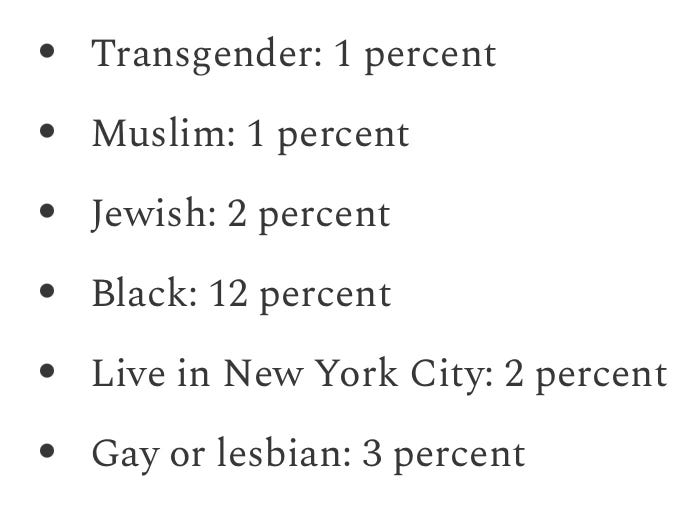Principle 36: Media Makes Problems More Prevalent Than is Reality
Things are rarely as bad as they imply
Back in Principle 27, I talked about how media is biased towards what upsets us. If it bleeds, it leads, that sort of thing. As a result, we tend to get lots and lots of bad news, and rarely any good news, or even ordinary news:
The sun came up today and it was beautiful
The beach was lovely today
Puppies played with each other in the park
That won’t sell ads! (Well, maybe the puppies…)
No, what we get is lots of this:
Ewww, pretty grim, right? But there is a strange thing that happens when you repeatedly hear in the news things about, oh, Muslims, or transgender folks. Over time that repetition of conflict stories makes people think, oh, there must be a lot of those sorts of people in the world!
Someone linked to a story that I read and found interesting:
In that story it talked about a 2022 poll:
YouGov asked a series of questions on “What percentage of Americans do you think are [fill in the blank]?” with the [blank] being all sorts of qualities: black, gay, Christian, left-handed, own a passport, etc.
The results were hilarious. Here are some of the percentages that Americans (on average) think their fellow citizens are:
Looking at the results, it is funny that people thought 30% of all Americans live in NYC. Shows you how putting the city in so many stories gets people to think, why, everyone lives there!
So what are the actual percentages of those categories?
Uh, yeah. So instead of marauding bands of transgenders running around, it’s a tiny percentage of humanity. Same with Muslims in America. Or gay and lesbian.
Just because media hammers a story, it doesn’t mean that reflects reality. Media is always going to talk about the strife stories, the ones where people are arguing. And when politicians have an incentive to exaggerate a problem so they can get funding to fight that problem, suddenly a 1-percent group is assumed to be 27% of all of Americans.
It’s easy to become biased by media. Remember, reality is not as dire as those with financial incentive to scare you make it seems.








What gets amplified is rarely what’s true, just what’s loud.
Bias compounds
Conflict sells → Outliers dominate coverage
Repetition → Outliers feel like norms
Political incentives → Groups weaponize the distortion
If media actually reported ‘ordinary’ truths (“Most people went to work, pet a dog, and didn’t hate anyone today”), we might have a less polarized society. But as you said, that doesn’t sell ads.
Happy New Week Nick :)
We have it so bad over here with the rags, people like to hate anyone not British, and even if they are, they're not British enough! They're taking jobs and funding allegedly, it's not as bad as people are told to believe and having an influx of people actually benefits the UK economy but the gammon wouldn't believe it now as the rich elite who run the ''News'' rags have for years told them to hate instead... does my head in.